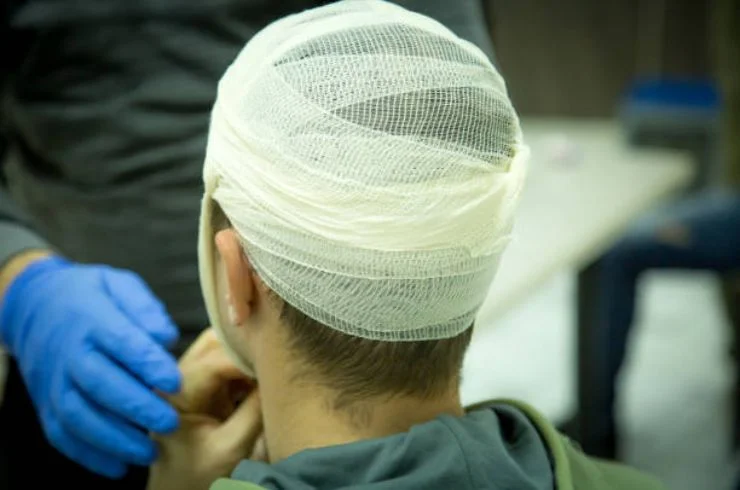Head Injury

A head injury can range from a minor concussion to severe trauma that affects brain function and structure. Whether caused by accidents, falls, or sports injuries, head injuries require immediate and expert care to prevent long-term complications. At Vardhman Neurospine and Orthopedic Hospital, we provide comprehensive, compassionate treatment for patients with head injuries, from initial diagnosis through recovery. Led by Dr. Vardan Kulshreshtha, a seasoned neurosurgeon and spine specialist, our team combines advanced techniques with a patient-first approach to ensure the best outcomes.
Understanding Head Injuries
Head injuries include any trauma to the scalp, skull, or brain, and they can be classified as open (involving a break in the skull) or closed (where the skull remains intact). Common types of head injuries include:
- Concussions: Mild brain injuries that may cause confusion, headache, and temporary cognitive changes.
- Contusions: Bruising of the brain tissue, often resulting in swelling and localized injury.
- Skull Fractures: Breaks in the skull that can increase the risk of infection and other complications.
- Traumatic Brain Injuries (TBI): More severe injuries that can affect motor skills, memory, mood, and brain function.
Symptoms of a Head Injury
Head injuries can manifest in various ways, depending on their severity. Common symptoms include:
- Persistent headache or neck pain
- Confusion or difficulty concentrating
- Dizziness or loss of balance
- Nausea or vomiting
- Blurred vision or sensitivity to light
- Loss of consciousness (even briefly)
In cases of severe head trauma, patients may experience seizures, slurred speech, and unusual behavior. Any head injury, even if it seems minor, should be evaluated by a medical professional to rule out serious complications.
Our Approach to Head Injury Treatment
At Vardhman Neurospine and Orthopedic Hospital, we follow a systematic and specialized approach to treat head injuries, ensuring that each patient receives timely and personalized care.
- Rapid Assessment and Diagnosis
Upon arrival, our priority is to stabilize the patient and conduct a thorough evaluation to assess the extent of the injury. Using advanced imaging technologies like CT scans and MRIs, we can identify fractures, bleeding, and brain swelling with precision. This rapid diagnostic process helps guide immediate treatment decisions, especially in critical cases where time is of the essence.
- Immediate Stabilization and Management
Stabilizing vital functions is crucial in head injury cases. Our team takes prompt steps to maintain adequate blood flow and oxygen to the brain while managing intracranial pressure. For severe cases, we may initiate intravenous medications to control swelling and prevent further damage.
- Surgical Intervention
In cases of severe head trauma where there is bleeding, brain swelling, or skull fractures, surgical intervention may be necessary. Dr. Kulshreshtha and our surgical team are skilled in procedures such as craniotomy (removal of part of the skull to relieve pressure), hematoma evacuation (removal of blood clots), and fracture repair. Our goal is to alleviate pressure on the brain, stabilize damaged areas, and minimize any risk of long-term complications.
- Comprehensive Post-Treatment Care and Rehabilitation
Recovery from a head injury often requires a period of rehabilitation to regain lost functions and prevent further issues. Our dedicated team works closely with each patient to develop a customized rehabilitation plan, including physical therapy, occupational therapy, and cognitive exercises. This holistic approach supports both physical and mental recovery, empowering patients to regain independence and return to their daily lives.
